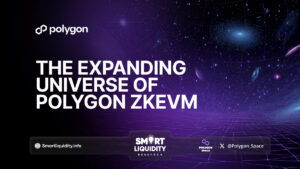Polygon’s Role in DeFi 2.0


Polygon’s Role in DeFi 2.0: Bridging the Gap to Scalable and Efficient Solutions
The rapid evolution of decentralized finance (DeFi) has introduced new possibilities for financial systems. As DeFi continues to grow, the need for more scalable and efficient solutions becomes critical. Polygon, a layer 2 scaling solution for Ethereum, plays a crucial role in the next phase of DeFi’s development, often referred to as DeFi 2.0. This new wave of decentralized finance aims to improve scalability, reduce gas fees, and enhance user experience, and Polygon is at the forefront of this transformation.
Enhancing Ethereum’s Scalability
Initially, Ethereum’s high transaction fees and congestion made it difficult for decentralized applications (dApps) to thrive. However, Polygon provides a solution by utilizing a technology called “sidechains,” which offload transactions from the Ethereum mainnet. By doing so, Polygon reduces the cost and time of transactions, making DeFi applications more efficient and accessible. This scalability improvement is vital for DeFi 2.0, as it ensures that applications can handle a larger volume of users without compromising on speed or cost.
Unlocking Interoperability
Another key element of DeFi 2.0 is interoperability. Polygon enhances this by enabling seamless communication between various blockchain ecosystems. As DeFi projects continue to proliferate, interoperability between different networks is essential to creating a unified, global decentralized financial system. Polygon’s multi-chain infrastructure allows assets to flow freely across different blockchains, fostering collaboration among projects and providing users with more options.
Boosting DeFi Innovation
Furthermore, Polygon’s ecosystem hosts numerous innovative DeFi projects, such as decentralized exchanges (DEXs), lending platforms, and yield farming protocols. These applications are not only more affordable to use but also provide advanced features that contribute to DeFi’s ongoing evolution. Additionally, Polygon’s security model and easy-to-use development tools have attracted developers, further accelerating the growth of DeFi 2.0.
In conclusion, Polygon is a critical enabler of DeFi 2.0. Through its scalability solutions, interoperability features, and support for innovation, it is shaping the future of decentralized finance. As DeFi continues to mature, Polygon will remain a cornerstone in realizing a more efficient, accessible, and interconnected financial ecosystem.




